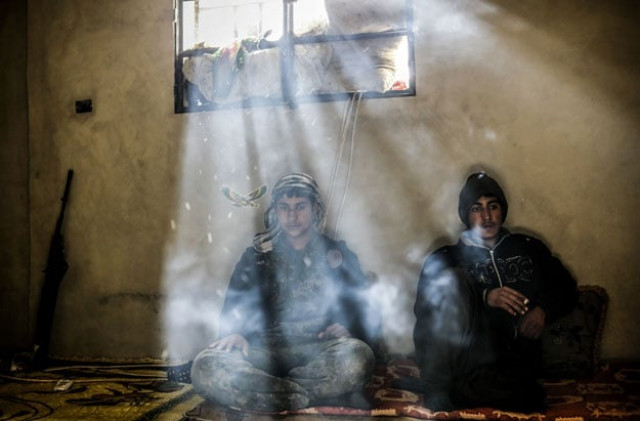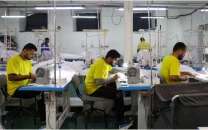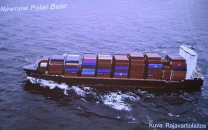Syrian regime reels from setbacks as rebels score key wins
Experts say losses are a reflection of the regime's weariness after more than four years of civil war

Kurdish fighters rest in a house on the outskirts of the Syrian town of Kobane, also known as Ain al-Arab, on March 30, 2015. PHOTO: AFP
Experts said the losses were a reflection of the regime's weariness after more than four years of civil war and increasing regional efforts to counter Iran's backing for Assad.
The taking by rebels late Wednesday of the last Syrian border crossing with Jordan in regime hands and of provincial capital Idlib on Saturday have dealt major blows to the regime, experts said.
And Wednesday's seizure of parts of a Palestinian refugee camp inside Damascus by the Islamic State group has shown the increasing reach of a militant force already in control of large parts of Syria.
"It's indicative of a problem the regime has that has been increasingly obvious - it has a manpower shortage," said Noah Bonsey, a Syria expert at the International Crisis Group.
"It has constraints on how much ground it can gain and how much it can hold outside of its core areas," he said.
Rebels seized the border crossing with Jordan after heavy fighting on Wednesday, leaving the regime with no presence on a key frontier.
The loss was only the latest for the regime in the southern Daraa province, after rebels took the ancient town of Bosra al-Sham last week and seized an important army base in January.
In northwestern Syria, meanwhile, the regime's loss of Idlib to Syria's al Qaeda affiliate, al Nusra Front, made it the second provincial capital in rebel hands after IS-controlled Raqa.
After heavy street fighting and regime air strikes that left at least 130 reported dead, al Nusra was able to consolidate its hold over a large area of Syria bordering Turkey by taking the city.
Bonsey said the losses in Daraa and Idlib were part of "a larger pattern" of the regime being pushed out of areas where it cannot commit significant forces or count on backing from ally Tehran or the Iranian-backed Lebanese Hezbollah movement.
"The regime is increasingly dependent on Hezbollah, foreign fighters and non-Syrian militias facilitated by Iran to accomplish military objectives," he said.
"So in places where you see Hezbollah and Iran willing to invest significant resources, the regime is able to gain or keep some ground," as it has done in areas southwest of Damascus, he said.
"But in places like Idlib, Hezbollah and Iran are not willing to invest with boots on the ground."
But increasing support for rebels from allied countries is another key factor behind recent gains, experts said.
"There has been a regional decision between Saudi Arabia, Qatar, Jordan and Turkey to stop the Syrian regime from advancing," said Rami Abdel Rahman, the head of the Syrian Observatory for Human Rights, a Britain-based monitoring group.
Abdel Rahman said the rebels had recently been supplied with new weapons from Jordan in the south and Turkey in the north.
"Regional powers want to retake the initiative. It's a message that they want to stop advances by Iran, the regime's ally, in Syria but also elsewhere like Yemen" where a Saudi-led coalition is bombing Tehran-backed rebels, he said.
Assad's regime has been battling a wide-ranging insurgency since an Arab Spring-inspired uprising in March 2011 evolved into a full-scale civil war that has now left more than 215,000 dead.
Secular rebels have been increasingly pushed aside in the opposition by militants, in particular IS, which has seized significant territories in Syria and neighbouring Iraq, declaring an Islamic "caliphate".
The IS threat to the regime was highlighted Wednesday when the group's fighters for the first time seized territory inside Damascus itself at the Yarmuk Palestinian refugee camp.
The militants managed to capture most of the camp before being pushed to its edges Thursday in a fightback by Palestinian militants loyal to Hamas and other rebel factions.



















COMMENTS
Comments are moderated and generally will be posted if they are on-topic and not abusive.
For more information, please see our Comments FAQ